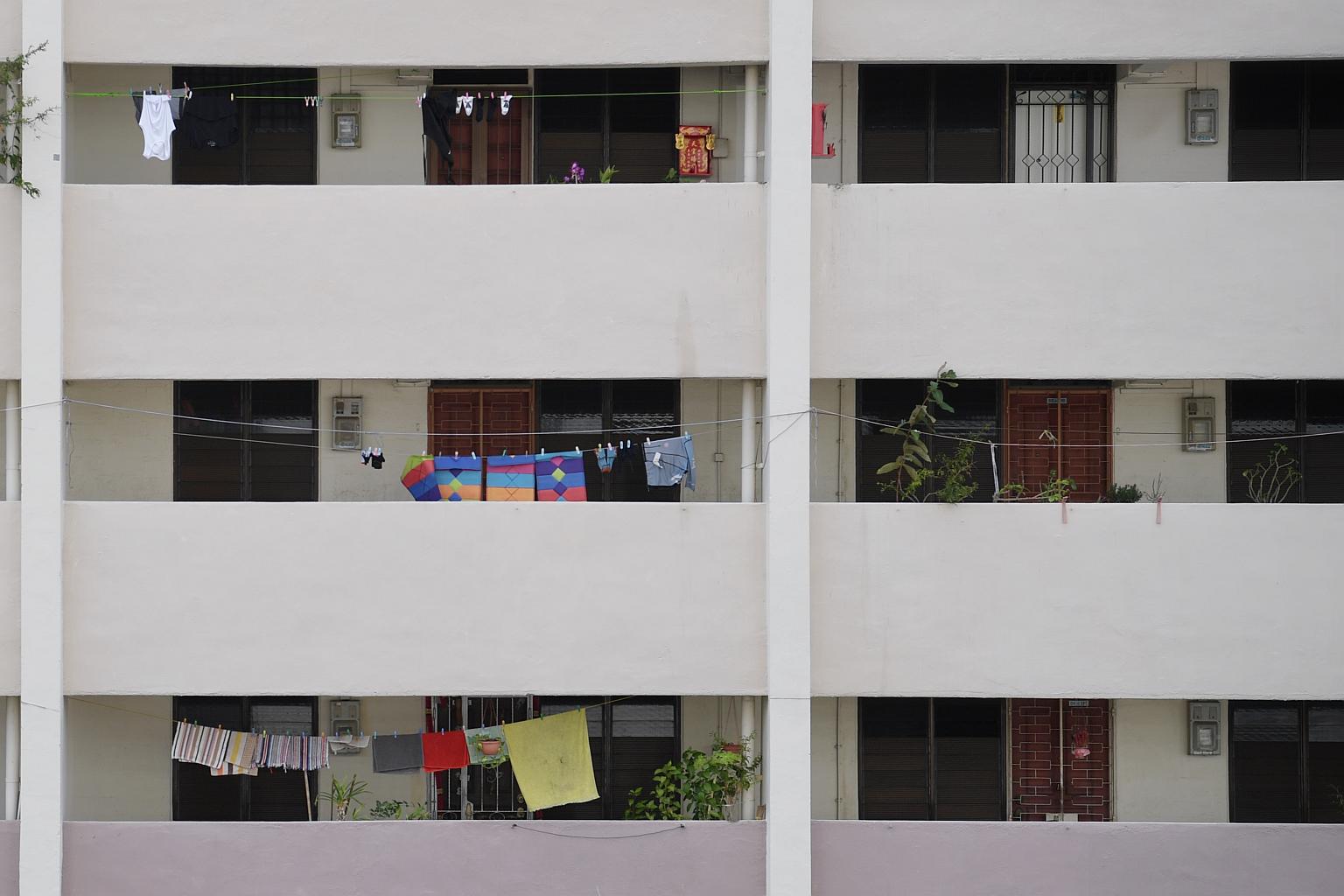Issues with Covid-19 home recovery programme being ironed out: Ong Ye Kung
Sign up now: Get ST's newsletters delivered to your inbox

The home recovery scheme had been in the middle of a trial run with just 21 patients on board when it had to be rapidly expanded, as Covid-19 cases rose in early September.
PHOTO: ST FILE
SINGAPORE - Singapore's home recovery programme (HRP) was not fully ready to deal with the surge in Covid-19 patients, Health Minister Ong Ye Kung said in Parliament on Monday (Oct 4).
But the country has otherwise planned ahead for the spike in cases, including having measures in place to ensure hospitals and healthcare workers can cope with more patients.
"In terms of planning, capacity, manpower - we are always one, two bounds ahead," Mr Ong said. "What did not go well - and I fully acknowledge that - was the HRP and all the complaints about conveyancing, calling, people not getting responses."
The scheme had been in the middle of a trial run with just 21 patients on board when it had to be rapidly expanded, as Covid-19 cases rose in early September and put pressure on Singapore's healthcare system.
Many people reported that they were unable to reach the Ministry of Health (MOH) for advice on their specific situation, and were at a loss over what to do next.
Over the past three months, hospitals also saw up to an eightfold increase in the number of people who sought medical attention at the emergency department after testing positive for the virus.
There are currently around 9,800 people on the programme, with more than 2,800 having completed their 10-day home recovery stint. More than half the new Covid-19 cases reported every day are put on the HRP, with this proportion expected to rise in the coming weeks.
Home recovery is meant to be the default for all fully vaccinated people. This is because the vast majority of Covid-19 patients - 98 per cent - show mild or no symptoms, and do not require special care.
Workers' Party MP He Ting Ru (Sengkang GRC) had asked Mr Ong about the Government's planning parameters, given the confusion on the ground.
"How many cases were we planning for back then, before this current surge?" she said. "How can we put in measures in place to make sure it doesn't recur?"
Mr Ong said the impression seems to be that the Government did not plan for the surge in cases - but this is not true.
It has worked closely with public health experts, who have projected that Singapore may eventually see 5,000 to 10,000 new cases a day.
It has also repeatedly stressed that cases will rise as the country eases restrictions as part of its plan to live with the virus, he added.
"The Delta variant came in, and then cases started to shoot up," Mr Ong said. "But fortunately, we have always been planning ahead, which is why at that point in time, we were already ready to handle 1,500 cases a day."
A total of 15 MPs raised questions on Covid-19 on Monday, several of which touched on the HRP and how it is being implemented.
The Singapore Armed Forces is now overseeing the operation from end to end, and teething issues are being ironed out, Mr Ong said. "Things are improving day by day."
At present, 93 per cent of those eligible for the programme are contacted promptly and enrolled without issues. People who test positive are typically contacted within 24 hours, during which a decision is made on whether they should be taken to a care facility or can recover at home.
But the authorities have faced difficulty contacting the remainder, either because they did not respond or have inaccurate contact details, he added.
Mr Dennis Tan (Hougang) asked if people can request to be taken to isolation facilities. Mr Ong said his ministry has been accommodating such requests, depending on patients' medical conditions and family circumstances.
"But it is also important to emphasise that individuals and families should make some adjustments to their living arrangements to make HRP possible," the minister stressed.
Hospitals can focus resources only on those who require greater medical attention - including patients who do not have Covid-19 - if most people opt for home recovery, he explained. "This will enable our healthcare professionals to concentrate on those who need hospital care."
Mr Ong urged people to help their family members or neighbours who may be illiterate and do not understand MOH notifications.
Volunteers from the People's Association have been reaching out to people on home recovery to ensure that they are well, and help with other needs such as groceries, he said.



